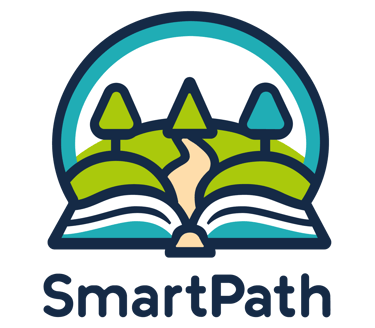Do Accredited Homeschool Programs Matter? What Parents Need to Know


If you’ve recently started exploring homeschooling, the term “accredited” has probably popped up more than once. On the surface, it sounds official—like something you should want. Especially if you’re new to homeschooling, it’s easy to wonder: “If the program I choose isn’t accredited, is it even legit?”
That question makes sense. But the real answer is more nuanced.
In reality, many homeschoolers don’t use accredited programs, and their kids thrive. The key isn’t a stamp of approval from an outside agency. It’s choosing what actually works for your child and your family.
What Does “Accredited” Even Mean in Homeschooling?
Accreditation is a review process typically run by regional or private accrediting agencies (not the government) that evaluates whether a school or program meets certain standards. These standards often include things like curriculum coverage, teacher credentials, and operational procedures.
For traditional schools, accreditation can affect funding and public perception. But for homeschoolers, it’s more complicated. Most states do not require families to use an accredited program to homeschool legally. You can often design your own curriculum, follow your own schedule, and still meet your state’s legal requirements.
In most states, accreditation isn’t required to homeschool, but it’s always wise to check your state’s specific rules. Start with your state’s department of education, local homeschool associations, or trusted sites like HSLDA to confirm what’s needed.
When Accreditation Does Matter
While accreditation isn’t essential for most homeschoolers, there are a few scenarios where it can be helpful:
Re-enrolling in public school: If you plan to return to public school later, some districts may look more favorably on work done through an accredited program. This varies from state to state, though some states have laws that require public schools to accept homeschool education, regardless of accreditation.
College admissions: Some families feel more confident submitting transcripts from an accredited program, though many colleges have clear policies for evaluating homeschool applicants without it. You can research colleges ahead of time to understand what their requirements are for evaluating homeschool applicants.
State regulations: States like Pennsylvania, New York, and California have more complex homeschooling rules, which may make accreditation seem like a safer choice.
Using state ESA funds: Some states require families to use accredited curriculum providers if they want to use state education savings account (ESA) funds to cover homeschooling costs.
Peace of mind: For some parents, knowing their child is in a structured, accredited program just feels more comfortable, and that’s okay too.
When It Doesn’t And Why Many Families Skip It
In most cases, accreditation isn’t necessary, and skipping it can open the door to more personalized learning.
Many homeschoolers build their own curriculum, mix and match resources, or follow less traditional approaches like unschooling or Charlotte Mason. None of these are “accredited,” but they work.
Colleges like Stanford, MIT, and Harvard regularly admit homeschoolers who never used an accredited program. What they look for is depth, engagement, and initiative, not a particular label.
Pros and Cons of Accredited Homeschool Programs
Pros
Easier recordkeeping
College-friendly transcripts
More structured
Cons
Less flexibility
Often more expensive
May not match your values or style
Choosing What’s Right for Your Family
Instead of asking, “Is it accredited?” try asking:
Do I want a structured curriculum or flexibility to create my own?
Am I homeschooling long-term or temporarily?
What are my state’s homeschool laws?
What makes my child feel confident and excited to learn?
These questions often lead to better decisions than chasing a credential.
How to Spot a Quality Program (Accredited or Not)
Whether you choose a packaged program or build your own path, look for:
Clear structure and support
Transparent pricing
Real reviews from other parents
Curriculum that aligns with your goals and your child’s learning style
If it feels like a good fit and helps your child grow, that matters more than a seal on the website.
Final Thoughts: It’s About Fit, Not Just Credentials
There’s no single right way to homeschool. And there’s no rule that says an accredited program is automatically better. For some families, it adds clarity. For others, it adds unnecessary pressure.
What matters most is that your child is learning in a way that feels meaningful, manageable, and motivating.
If you want help exploring that fit, SmartPath can help. We've built a free tool to guide you through the process, tailored to your child’s needs and your unique setup.
